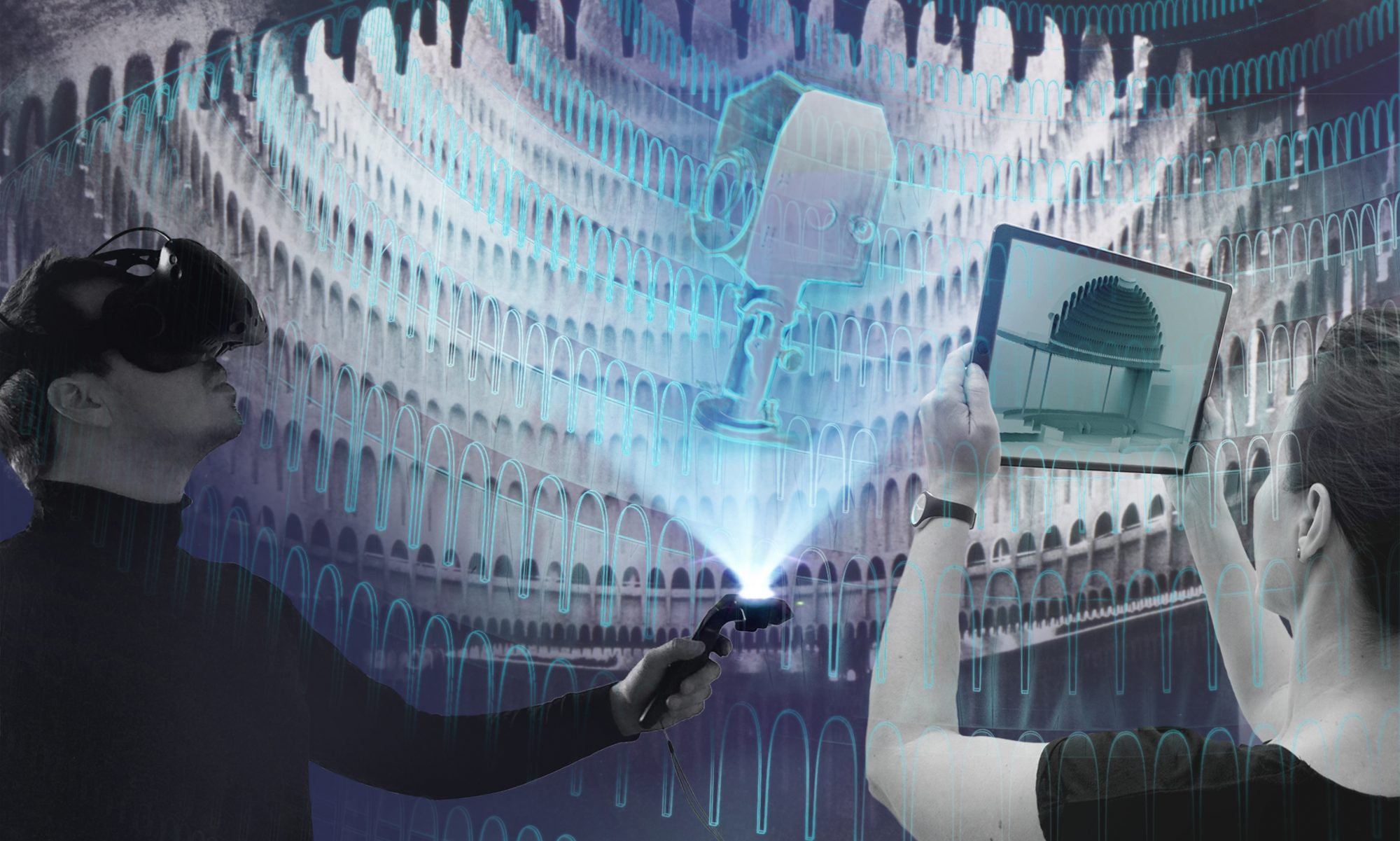The main goal of the sub-project “Virtuelle Lehr- und Lernräume” was to initiate necessary structural changes at the universities. In the long term, access to XR laboratories is needed, such as those currently being established in neighbouring disciplines at the Berlin University of Applied Sciences, as well as dedicated financial and technical resources in the respective degree programmes. In order to work on VR projects, which are fundamentally interdisciplinary in nature, cross-disciplinary cooperation with external partners and academic networks is needed. For this purpose, the „XR Academic Network“ was founded last year at the TU Berlin – also on the initiative of the digital.DTHG – a cross-university network in which academic staff from Berlin and Brandenburg universities regularly exchange information about teaching and research in the field of XR technologies. The challenge in the future will be to create our own flexible structures within the university and to skilfully combine these with external practical knowledge.

In this respect, the two practical seminars at the Berlin University of Applied Sciences were an impulse in the right direction. Project leader and lecturer Franziska Ritter emphasises:
„It was very enriching for all participants to think together so experimentally and openly about how to prepare for the new professional challenges with good digital teaching.“
For many students, this way of working was new, unfamiliar and challenging. Student Lukas Runge summarises:
„Pain is temporary – Glory is forever! Through the seminar, our small team of three students – despite little previous knowledge – was able to get started with the game engine Unity3D in a short time and thus develop a functioning prototype. With our contribution „Sound Space“, you can train skills in the field of microphoning virtually.“

Student Gilbert Adamek also sums up:
„The last academic year under pandemic conditions was extremely challenging, so it was very motivating to put ourselves in the role of a teacher for once in this seminar and to think about how we would like to be taught in the future. The seminar was extremely varied, from designing a task, to developing a didactic mediation strategy, to coding and implementing (which we had all never done before). And on top of that, I not only learned something in the subject area of theatre technology, but also about agile working, virtual working worlds and game design! It would be great if there were more offers of this kind in the future.“
An essential guarantor for the success of the project was the close didactic-conceptual cooperation with the teachers of the subject areas of the study programme „Theatre and Event Technology and Management“. Prof. Stephan Rolfes, head of the degree programme and professor in the subject area of machine elements and construction exercises, describes the work on the prototypes:
„We developed the first concepts for virtual learning spaces based on existing courses. In the process, the advantages of the technology became apparent very quickly: the possibility of making teaching content tangible, for which otherwise a considerable spatial, technical and also financial effort would be necessary. This is demonstrated, for example, by the exercise on the configuration of electric chain hoist systems, which would not be feasible in „real“ reality: students learn the requirements and safety-related components of electric chain hoists and their controls. They can then configure and use systems in a virtual exercise.“
For Stephan Rolfes, the introduction of virtual teaching and learning spaces is trend-setting:
„The innovative approaches and excellent results that have emerged have shown how sensible it is to continue with VR in teaching, but also in research. We still have a long way to go. At the Berlin University of Applied Sciences, we are currently building our own laboratory for this purpose, in which VR and AR will be used in teaching across all courses.“
Prof. Joachim Villwock, who heads the „CAE and Simulation – CAVE“ laboratory and the project „Interactive Teaching in Virtual MINT Labs“, also sees great potential in the use of immersive technologies in teaching:
„The learning tools presented here are an important milestone in the profiling of the degree programme. Beyond the project, the VR scenarios created form an important basis for further developments in the direction of hybrid teaching at the university. The goal here is to consistently link the possibilities of virtual laboratories with digital teaching and learning concepts and to bring them to the university at large. These innovative interaction formats in the virtual area must be anchored and thus strengthen the university through digitalisation. I was particularly impressed by the maturity of the virtual learning tools developed by the students. It shows how profitable the cooperation between IT experts and specialists in event technology and theatre can be and how quickly applications can be created that can be implemented in practice.”
In addition to the potentials, the cooperation has also made clear which framework conditions will be necessary at the training institutions in the future. Prof. Dr. Alexander Lindau, who has supervised the content of two virtual teaching projects in the field of media technology, states:
„The potential of virtual teaching spaces can only unfold when technical and operating barriers for online or face-to-face users are minimised. We have gained valuable experience in this regard within the framework of the project. In my opinion, a successful integration of virtual teaching into higher education requires long-term investments in personnel and technical infrastructures. Only then can virtual reality fully exploit its advantages in higher education.“
This sub-project and the prototypes created show in a convincing way that this practical type of cooperation requires an agile and creative way of working and the strong commitment of everyone involved in order to be able to react quickly and flexibly to constantly changing conditions. In this way, a new way of learning could be tested together with students and digital teaching could be advanced. Welcome to the future!



